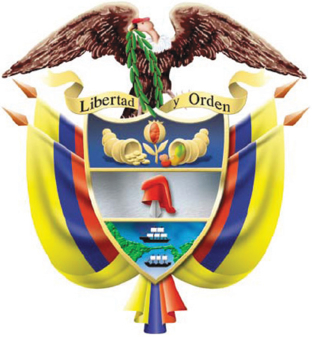On August 29, 2019, Ivan Marquez and Jesus Santrich (“Santrich”), former senior leaders of the FARC, announced that they would once again take up arms and return to conflict. On October 9, 2019, the FARC party, the successor of the guerrilla group, expelled all the guerrilla members that announced their rebellion. Several FARC dissidents, including Santrich, are requested in extradition by the United States for narcotrafficking and money laundering charges. Furthermore, in December 2020, the Consejo de Estado ruled that Santrich would no longer be a member of the House of Representatives for the 2018-2022 legislative period.
On September 30, 2019 the Presidential Counselor for Stabilization and Consolidation stated before a committee of Congress the Government’s continued commitment to the implementation of the peace agreements reached with the FARC. The Government has invested approximately Ps. 900 billion in projects related to the implementation of the peace agreements.
The Government has implemented security measures to protect ex-combatants. A total of 820 collective reparation actions have been performed for 62 native Colombian and 758 non-native Colombian victims. A total of 68 victim relocation plans have been authorized. Between August 2018 and December 2019, 41,370 hectares of illicit crops were eradicated. As of November 30, 2020, 1,842 productive projects employing 5,167 ex-combatants have been approved, for which Ps. 51,616 million have been allocated. A total of 25,677 ex-combatants have successfully completed the reintegration process, of which 73% have training for work.
On November 24, 2020, the National Government issued Decree No. 1543, which establishes the requirements for ex-combatants to have access to land to carry out productive projects and regulates the transfer of rural properties to those ex-combatants. On December 11, 2020, the National Reincorporation Council (CNR) approved a health program for 2021 benefitting ex-combatants in the process of reincorporation.
Other Domestic Initiatives
On March 6, 2018 the Government enacted Decree 437 of 2018, which establishes a public policy aimed at promoting religious tolerance and fostering religious freedom.
On April 17, 2018, the Government enacted Decree 660 of 2018, which seeks to provide comprehensive protection to all communities with the support and coordination of territorial entities. This decree was enacted within the framework of the peace agreement reached with the FARC.
On August 26, 2018, a referendum was held to decide on the implementation of certain anti-corruption measures. Seven questions were on the ballot. Although every single proposal received a 99% approval, none of the proposals met the minimum threshold of votes. On December 28, 2018, Law No. 1943 (the “Financing Law”) was signed by President Duque. The Financing Law, which entered into force on January 1, 2019, aims to increase Government revenues by approximately Ps. 7.5 trillion pesos. The Financing Law includes, among others, the following measures: (1) a new transactional tax on the sale of certain real estate; (2) a regular VAT for beer and for certain sugar drinks; (3) a 1% annual wealth tax on certain individuals for years 2019, 2020, and 2021; and (4) a tax on certain dividends at a rate of 7.5% or 15% depending on the nature of the recipient of the dividend. Further, the Financing Law strengthens the Direccion de Impuestos y Aduanas Nacionales de Colombia (“DIAN”); increases the Republic’s ability to collect fiscal revenues; promotes formal employment; incentivizes large-scale investments that create more than 250 new jobs; and promotes incentives for investment in sectors of the Orange economy, including cultural and creative industries such as architecture, audiovisual arts, digital services, fashion, graphic and industrial design, handcrafts, music and software.
On October 16, 2019, Congress approved the Budget Law for the year 2020 with a total budget of Ps. 271.7 trillion, and an increase in investment of Ps. 7.3 trillion.
On October 16, 2019, the Financing Law was declared unconstitutional by the Constitutional Court due to errors in the legislative approval process. The decision of the Constitutional Court is not retroactive and will be
S-19

